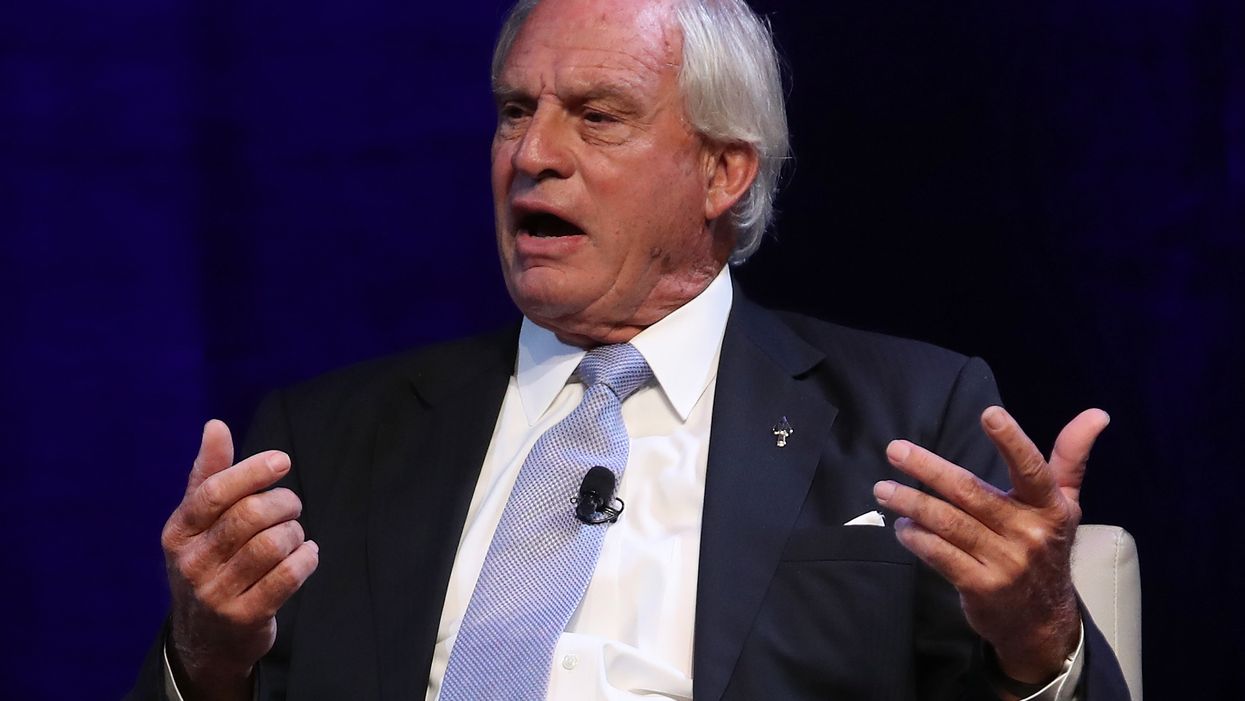With the Federal Election Commission ending its fifth month out of commission, an unusually bipartisan group of departed members of Congress says enough is enough.
Two former senators and seven former House members — five Republicans and four Democrats — pressed the Senate leadership Thursday to confirm new members of the commission right away, so that it can revive oversight of campaign donations and spending in this year's presidential and congressional campaigns.
The group joins coalitions of good-government groups and campaign finance lawyers who have issued similar appeals in recent weeks. But President Trump and Senate leaders are showing no signs of breaking their impasse and allowing the FEC to get back to work. It has been effectively shut down for lack of a quorum since Labor Day.
Just three seats are occupied, and by law it takes four votes for the commission to conduct even the most routine business. But filling the vacancies with people lacking an assertive approach to campaign finance regulation is not the answer, the nine lawmakers said.
"We strongly encourage you to refuse to confirm any FEC nominee who will not enforce campaign laws according to the Constitution, as Congress intended," their letter to the Senate said. "Confirming new commissioners who are opposed to enforcing the law would only extend the current dysfunction and dismantle the power of Congress."
That even five former members from the GOP were willing to sign on to such a message is unusual, because a bedrock view held by the party these days is that the FEC that regulates best is the one that regulates least.
The former members did not specify how the quorum should be restored, though. Because the three remaining commissioners have all agreed to remain past terms that expired years ago, the constitution of an entirely new panel of six is one obvious solution. But that would require a significant personnel deal between the White House and the Senate, because by law members of each party may hold no more than half the FEC seats.
A clean slate is what a bipartisan group of campaign finance lawyers would prefer. But a coalition of good-governance groups called for less drastic action, saying the priority should be restoring a quorum.
Although Trump put forth Texas Republican Party lawyer Trey Trainor as his single nominee more than two years ago, the Senate has never held a confirmation hearing. Historically, vacancies are filled as bipartisan couples, and the Democrats have signaled their choice to pair with Trainor would be senior FEC staffer Shana Broussard. But her nomination has never been formally made.
"The Founders wisely gave the Senate the duty of confirmation so it could ensure that individuals nominated for executive branch positions would faithfully execute the laws of our nation," the former members wrote.
All of the nine left office at least five years ago. The Republicans are former House members Jim Gerlach of Pennsylvania, Sue Myrick of North Carolina, Claudine Schneider of Rhode Island, Zach Wamp of Tennessee and Porter Goss of Florida, who went on to be CIA director in the George W. Bush administration. The Democrats were two former senators, Russ Feingold of Wisconsin and Mary Landrieu of Louisiana, and former House members Lynn Woolsey of California and Tim Roemer of Indiana, later ambassador to India in the Barack Obama administration.
All belong to the ReFormers Caucus, a group of ex-members advocating for democracy reforms and aligned with the political advocacy group Issue One. (That organization is also the parent of, but journalistically independent from, The Fulcrum.)




















Trump & Hegseth gave Mark Kelly a huge 2028 gift